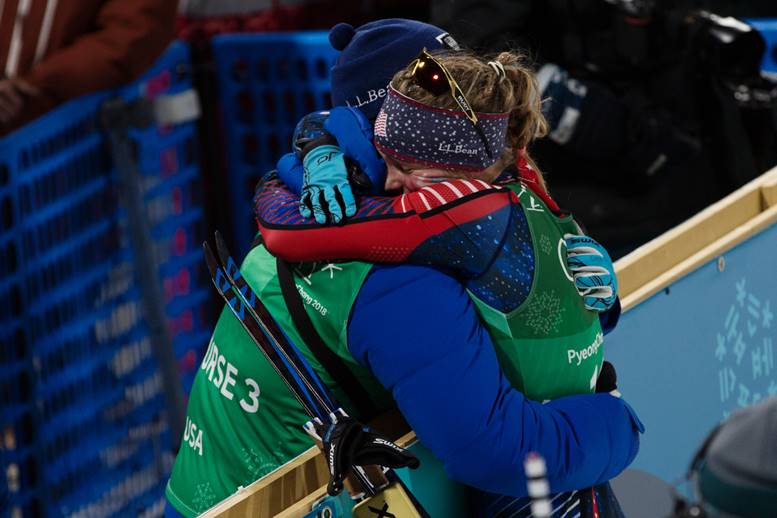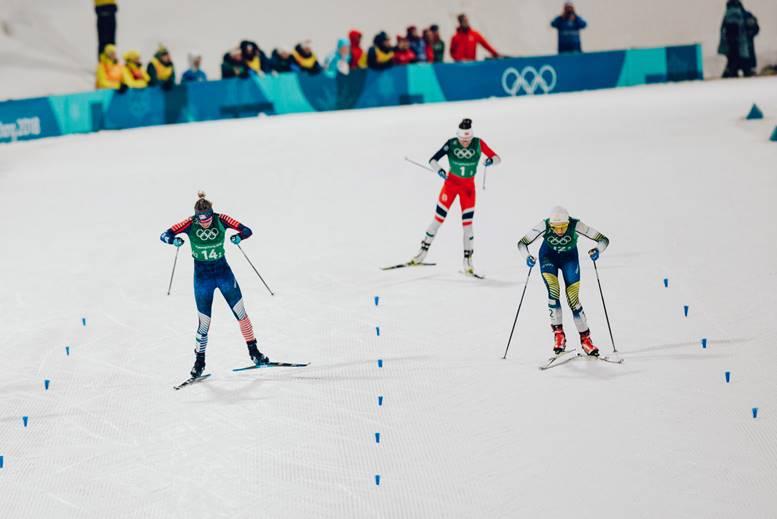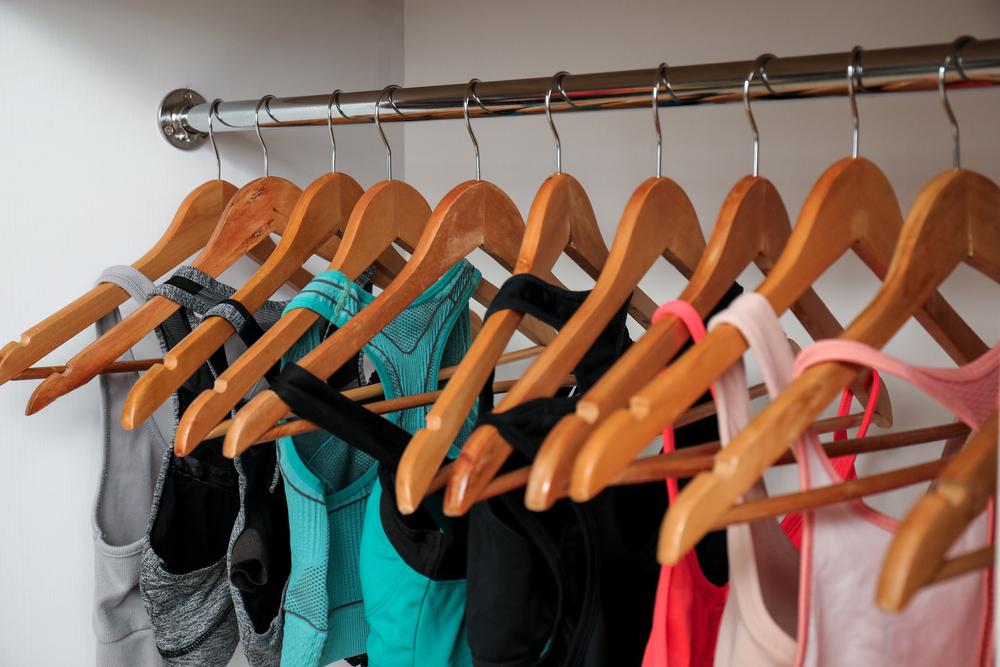“I am how I act, and I am what I do. I’m not what I look like…that does not define me.”
Content Warning: This article contains mentions of eating disorders.
When it comes to body image and body confidence, we don’t usually think Olympic athletes struggle with these issues. But despite being at the top of their sport, these athletic wonders are human and they’re just as vulnerable to the social pressures we all encounter when it comes to looking a certain way.

Jessie Diggins, whose team sprint won the first gold medal the United States has ever won in women’s cross-country skiing, recently posed for the 2018 ESPN Body Issue, an opportunity she never thought she’d be offered. Why? Because when she was younger, she struggled with a healthy body image herself.
Looking back at that time, Diggins recounts the pressures of being a Type A student-athlete with a strong propensity for perfection.
“I wanted to be pulling As in all my classes and I wanted to do well in sports. I was just stretching myself really thin. I liked school, I loved playing violin, I loved sports, I loved doing many different sports. I liked trying to have a social life and hanging out with my friends.
But, when I combined it all, I felt like I didn’t have that much control over my schedule. I was just always going and always so busy, and I was a hundred percent over committed in everything I that I did.
I also struggled with a healthy body image. I was so hard on myself and wanted to look a certain way. I was an endurance athlete and endurance athletes are skinny.
I was not very accepting of the changes my body was going through, and on top of that, I had an eating disorder. On some level, I wanted to be thin for sports, but it also wasn’t about the food.”
The stress from Diggins’ eating disorder followed her as she continued to progress as a junior cross-country skier moving up to the national team. With an even higher level of expectation to succeed, Diggins’ confidence began taking a hit.
“I felt like I was inadequate most of the time. It was hard because I’d show up to ski practice – and skiing is something I love, it gives me so much joy, but I would just be second guessing myself because I felt I wasn’t the right body type to go fast.
I’d finish training and think, ‘Well, should I have a snack after? Should I not? I don’t know.’
I would over-think and it took so much joy out of it for me. The saddest part was that I was so unsure of myself and had this internal struggle over the smallest thing. Like, whether I should put a sports drink into my drink because it had sugar in it.
The littlest things would cause so much angst and pain. It was such a hard time in my life. It was all I could think about. It was all-consuming.”
Diggins’ tunnel vision also kept her from maximizing her time with her teammates.
“I didn’t get as much joy out of having awesome teammates and getting to work with them every day when I was struggling with an eating disorder and poor body image. It really affected all my relationships, because I didn’t love myself.
When you don’t love and respect yourself, it’s very hard to have meaningful relationships with other people because you think, ‘Oh, they might not like me because I’m not the right size to be a good ski training partner.’
It’s a completely irrational thought, but what it comes down to is, I really didn’t love myself. And it’s just hard to build good connections with other people.”
Some would argue that one of the biggest parts of sport is cultivating connections. Sport bonds people, whether it’s with a teammate, coach, or parent.
“Having a team environment is huge in creating positive body image and positive self-esteem. It’s not helpful for anybody if you have a team environment that is toxic.
You have to create a positive team atmosphere where you lift one another up and don’t comment on one another’s bodies. It’s more of what your body can do.”

The journey to developing a body-positive sport environment and a healthier overall outlook on her own body image wasn’t an easy journey, but Diggins prevailed with the support of her family, friends, and teammates.
“Once I realized I needed help to get healthy again, I went to the Emily Program treatment center for eating disorders. Taking that first step and asking for help was really scary, but it was the best thing I ever did because it saved my life! They helped me learn how to love myself, to see the good in myself, and to realize that I am good enough just the way I am.
I’m happy to say that these days my confidence and self-esteem is completely different from when I was struggling with body image issues. That’s not to say there aren’t days when I have thoughts like, ‘Oh, I wish I was stronger, or I wish I was leaner, or I wish I was faster.’
Everyone has those days, but I would say there’s always this internal dialogue, where you have to be your own best cheerleader.
When I realized that I don’t have to be perfect, that’s when I learned how to really like my body for what it does.
Everything that my body does makes me fast on skis and that allows me to do all these awesome things that I love.
You need to shift your thinking from, ‘I want or I wish,’ to ‘Wow, I have.’
Instead of thinking about, ‘Oh, I wish I was taller, or had stronger shoulders, or stronger abs, I wish I had a six pack,’ I started to think about the things I do have, like my strong legs and my strong arms.
I really love what I have, and I need to protect that and take care of that.
I realized, too, that people love me and care about me for who I am and that’s not tied to what I look like.”



